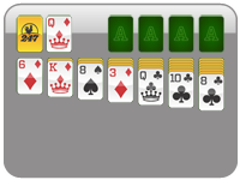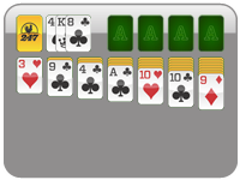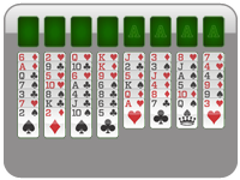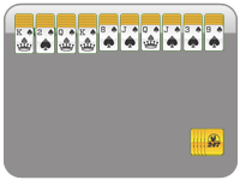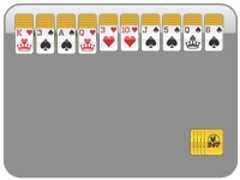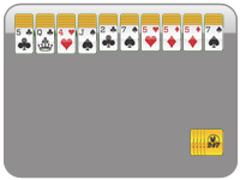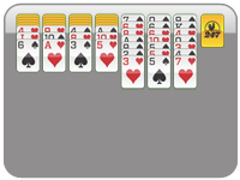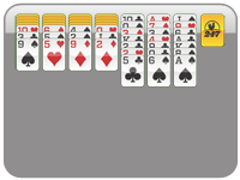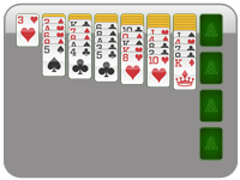Hearts VS Spades: Card Game Comparison

When it comes to hearts vs. spades, the card games aren’t that different. Once you understand the rules and scoring of one, it makes it easier to understand the rules and scoring of the other. They’re not perfectly interchangeable of course, but they do feature similar components. That said, understanding their specific differences is still essential to improving your chances of winning at either game. In this piece, we’ll help you compare the two, understand scoring rules, and help you figure out which one you’ll want to play first.
Comparing Gameplay and Objectives

So what is the difference between spades and hearts exactly? Let’s dive into the rules, scoring, and strategies for each.
Core Rules and How Each Game Works
Hearts is a game where each player automatically plays for themselves. There are no teams here. You’ll get four players and each will get 13 cards. A standard game ends once someone reaches 100 points and then the person with the fewest number of points is the winner. For hearts players, they want to avoid winning hearts and the queen of spades in order to keep their tally down.
Spades, however, is all about getting the most number of points. It’s most commonly played individually or in teams of two. Players start the game with 13 cards each and then bid on how many tricks they think they’ll take. The first person or team to reach 500 points wins the whole game.
The biggest difference here is in round flow. In hearts, players are penalized for unwanted wins. Winning tricks is a negative for hearts players. But spades rewards trick-taking, especially if you can match your bid exactly. Spades also uses trump cards (spades beat all suits), but hearts does not.
Scoring and Strategy
The scoring between the two works quite differently and this may be the trickiest part of the games. In general, low scores win in hearts. But the way points are tallied up is that players get one point for each heart taken and 13 points goes to whoever has the queen of spades. One of the smarter strategies here is to make sure you’re switching up your game even between hands flipping between passive and aggressive. It’s helpful for keeping your opponents on their toes.
In spades, it’s all about accurate bidding and plotting your wins carefulling. You want the maximum points here and you get 10 points for every win that matches your bid (i.e. you bid 6 tricks and win 5 tricks, that’s 50 points for you). You then get one point for any wins over your bid up to 10. Once you hit 10 extra wins (i.e. you bid 6 but won 17 tricks) you’ll be slapped with a 100-point penalty. Here, your skills of prediction are prized and your accuracy will make for better, easier teamwork.
Which Game Is Better for You?

Now that you better understand the differences between the two games, it’s time to think about which is the better choice the next time you play cards.
Best Group Size and Setting
First ask yourself how many people you’ll be playing with. Hearts can work with anywhere from three to six players, but is generally best with four. Adding or removing players will require you to alter the game slightly. For instance if you’re playing with three players, then remove the 2 of diamonds and each player will get 17 cards. But if you’re playing with five players, then remove the 2 of clubs and give each player 10 cards.
Spades, like hearts, works best with four players. Also like hearts, the game can be modified so you can play with three to six players. With six players, you’ll likely need two decks and to split everyone into teams of two, while with three players you’d remove the 2 of clubs and give each player 17 cards.
That means either game can be great for relatively small groups, but only spades encourages teamwork. So if you want a more cooperative environment, then spades might be the best option.
Learning Curve and Skill Growth
Both games have relatively simple rules that shouldn’t be too hard for the average person to follow. Hearts is a little easier because scoring is simpler, but the psychological aspect of it can be tough to master. That’s because passing in hearts goes better if you take the time to understand your opponents’ mindsets and can predict their moves.
Spades is a little more difficult up front because bidding and scoring can be a little frustrating to master. If you’re playing in teams, then that adds another element of difficulty. Ultimately, both games reward pattern recognition and memory, but in different ways.
Feeling and Playstyle
The feeling of hearts vs spades as a card game can also be part of what differentiates them. Hearts can have a reputation as a sneaky, opportunistic game that can appeal to chaos-loving players. There are so many ways to push the game in unexpected directions on your turn that it slightly changes the energy of a game.
Spades, on the other hand, is a little more methodical and strategic. Players that love planning out their moves may have a little more fun here as they work out which tricks to win. For your personal preferences, where do you land? Do you want to bluff and dodge or predict and plan?
Why Not Try Both?
Luckily, you don’t really need to choose between the two. You can play both on 247 Solitaire. You can play a round of hearts and then follow it immediately with a round of spades to see how each game stacks up against the other. How do you feel when you play? Do you notice how your strategy changes? No matter which you opt for, both help sharpen your brain and make game nights a lot more fun. In fact, why not give all the games at 247 Solitaire a whirl?
Solitaire Games
More Solitaire Games
More Games
Solitaire News
Disclaimer
DISCLAIMER: The games on this website are using PLAY (fake) money. No payouts will be awarded, there are no "winnings", as all games represented by 247 Games LLC are free to play. Play strictly for fun.

